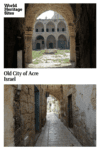Old City of Acre
By Rachel Heller
What is the Old City of Acre?
Acre, often called Akko, is a city on the northern coast of Israel. It has a long history starting with the Phoenicians, but it is most known for two later periods.
Disclosure: This article contains affiliate links. Making a purchase through an affiliate link will mean a small commission for this website. This will not affect your price. Privacy policy.
In the Middle Ages it was the capital of the Crusader Kingdom in the Holy Land, and many Crusader structures remain.
More immediately apparent is the Ottoman-period walled city, whose citadel and other structures were built right on top of the Crusader city.
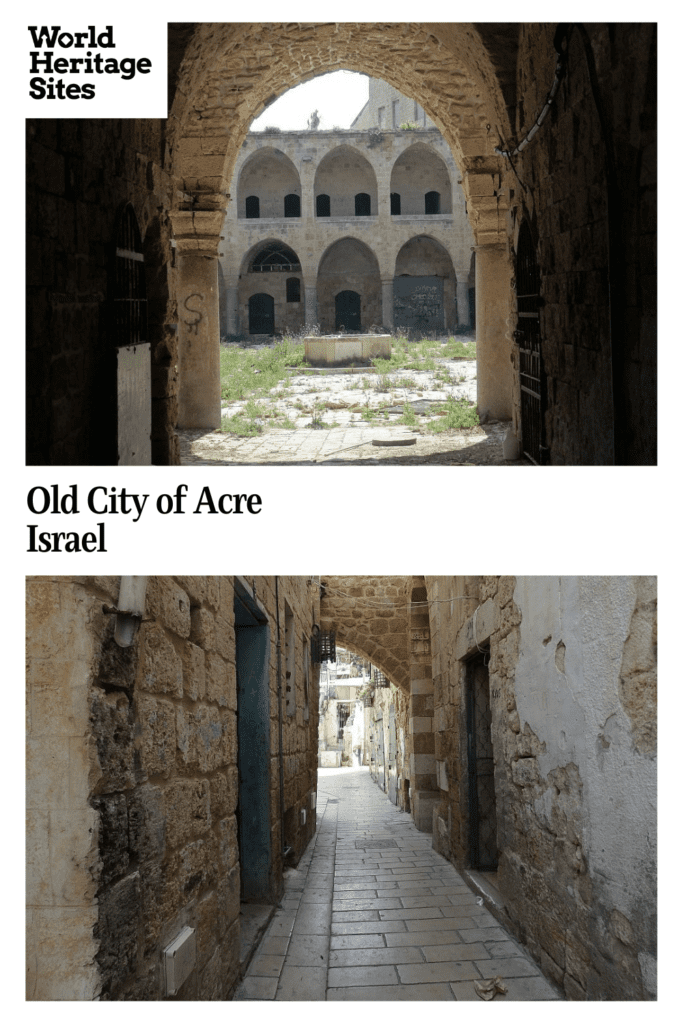
Why is the Old City of Acre a UNESCO World Heritage site?
Acre is unusual in that it preserves the Crusader city literally underneath the later Ottoman city. According to UNESCO’s listing, “the remains of the Crusader town of Acre, both above and below the present-day street level, provide an exceptional picture of the layout and structures of the capital of the medieval Crusader Kingdom of Jerusalem.”
The Ottoman period is also part of the designation. Acre is a good example of an Ottoman walled town and has well-preserved typical Ottoman elements like the citadel, mosques, khans and baths.
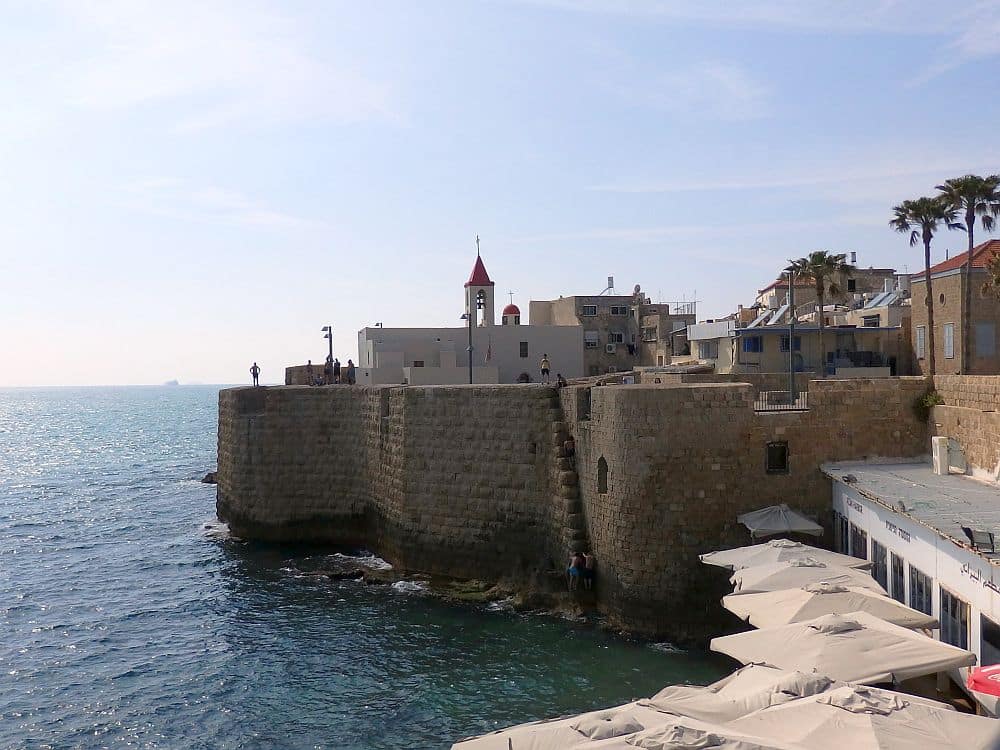
What can you expect on a visit to the Old City of Acre?
Acre has the appearance and atmosphere of the old city of Jerusalem, but could be called “Jerusalem without the politics.” Today its population is predominantly Arab Israelis, so it feels less tense than Jerusalem, where the Israelis and the Palestinians live so close together and have such a complicated relationship.
The streets inside the Ottoman walls are narrow and twisting and invite exploration. Just like in Jerusalem, the age of the city is apparent everywhere you look, with, for example, different types of stonework on the walls of a single house, or traces of old archways that still show in later walls.
Where to stay in the Old City of Acre.
There are also a number of specific sights to see:
The Hospitaller Fortress: The Crusader-era fortress, built by the Knights Hospitallers after they reconquered Acre in 1191, is today underground, or rather under the Ottoman Citadel. You can wander the “streets” (now roofed) and buildings and learn the history of Acre from the multi-media displays as well as learning what the place was like and how it was used in the Middle Ages.
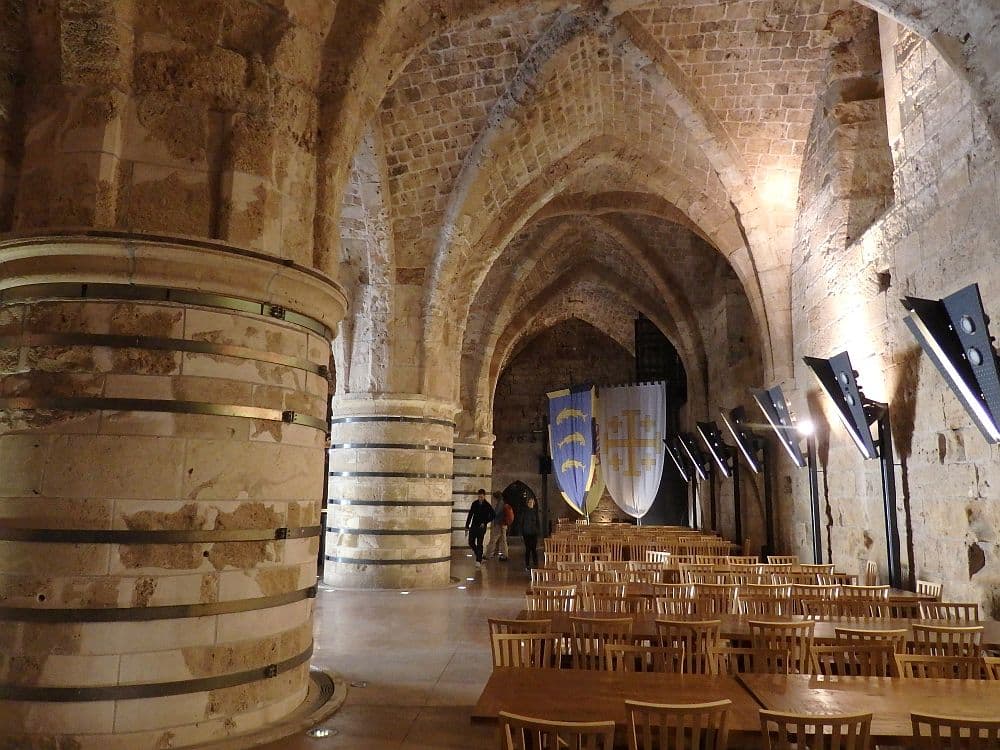
The Templar Tunnel: This tunnel, built by the Crusaders, links the port, where pilgrims arrived by boat, to the fortress.
The Turkish Bathhouse: No longer in use, the Turkish Bathhouse dates to the 18th century and is now a museum. Exhibits and statues demonstrate how it was once used.
The city walls: You can walk along parts of the city walls to see the views and enjoy the sea breeze, while in other spots you can only walk along it.
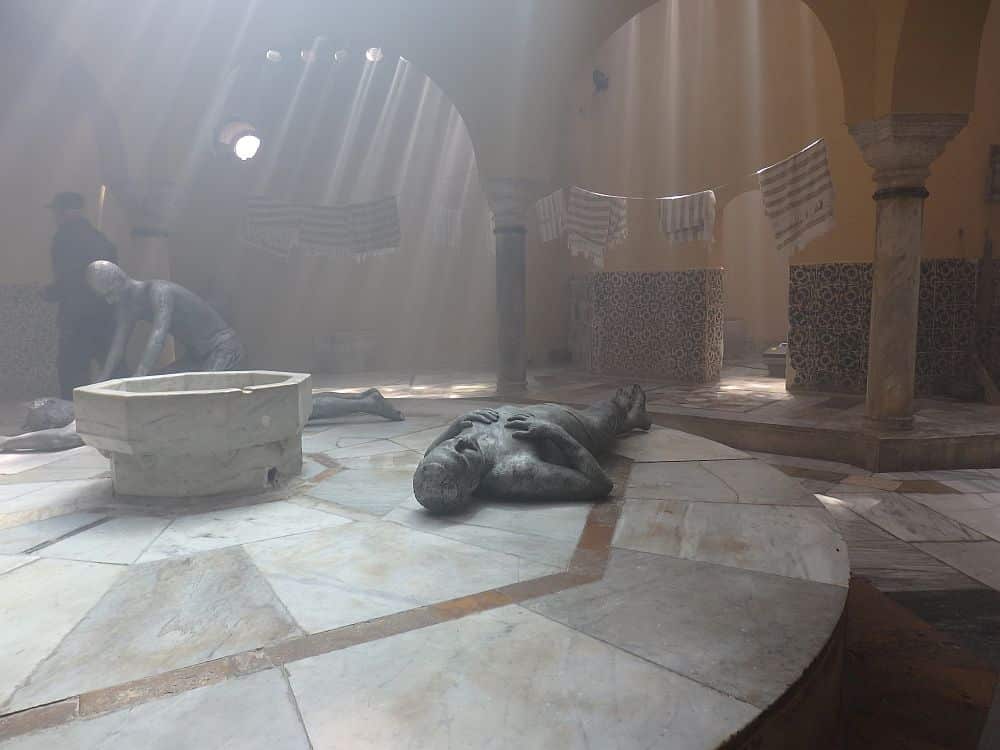
Is the Old City of Acre worth visiting?
It depends. If you have the time to explore Jerusalem Old City well, perhaps it’s not necessary to travel to Acre. On the other hand, if you’re going to visit Haifa anyway, as many visitors to Israel do, it’s not much further to Acre. If you happen to be in Jerusalem at a period of heightened tension – and therefore increased police presence – you might prefer the calmer atmosphere in Acre.
Of course, if you’re particularly interested in the Crusader era, you should certainly visit. I would add, in that case, that it’s worth visiting Belvoir fortress as well (Kokhav Hayarden National Park), which is near the border with Jordan, south of Tiberias and east of Nazareth.
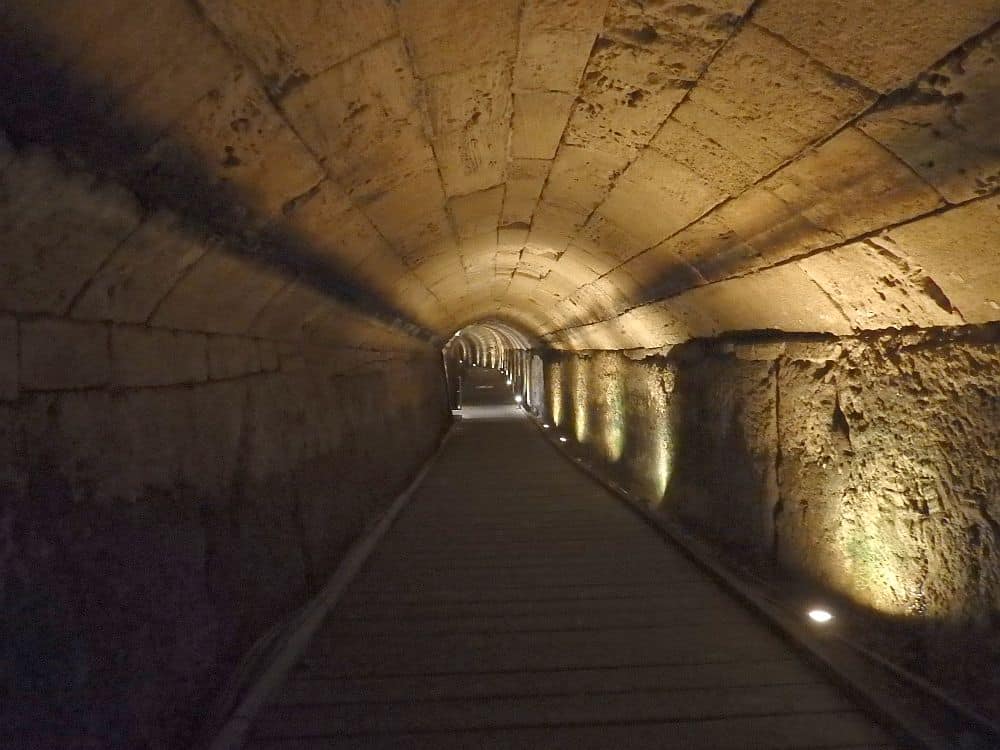
Tips for visiting the Old City of Acre
The Enchanted Garden is a small and shady park – more of a plaza – but that’s where you can find the Visitor’s Center and buy tickets for the sights.
Unsurprisingly in such an old city, the pavements are old and uneven. Wear strong shoes without heels. Apply sunscreen often and stay hydrated.
As you stroll around the town, look out for khans, which are also sometimes called caravansaries. These were inns for merchants. They would come with their wares, which they’d store in storehouses on the ground floor, and they’d sleep above them on the second floor. There are four of them, in different stages of repair and repurposing.
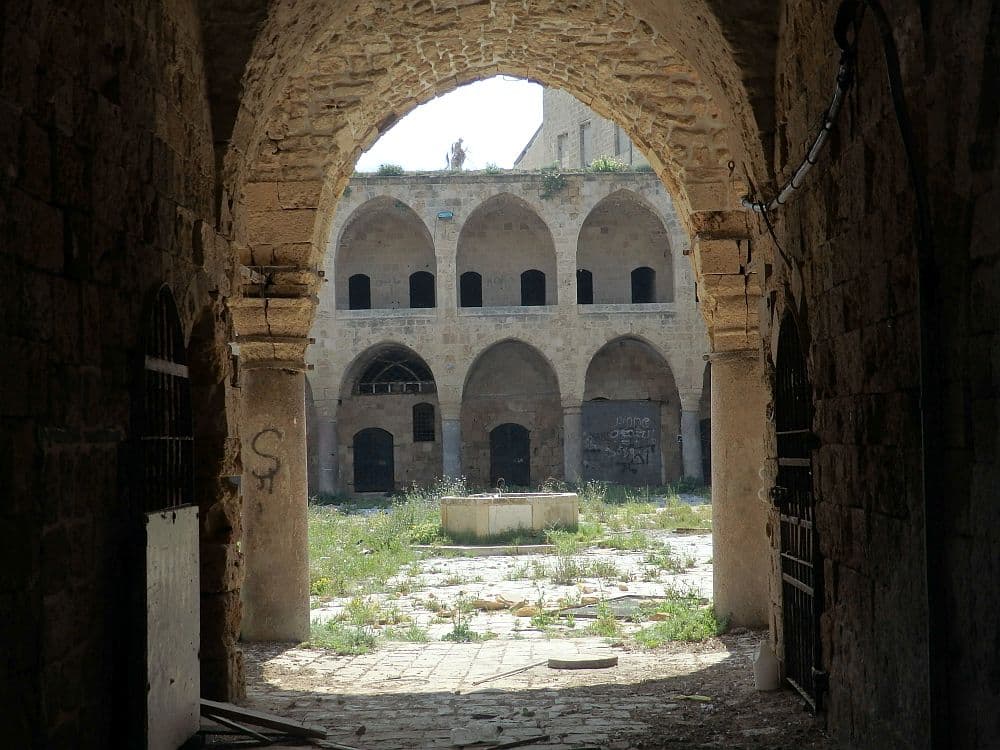
Where is the Old City of Acre?
Acre is about a half-hour’s drive north of Haifa or you can take a bus in about 30-45 minutes. From Tel Aviv it’s an hour and a half’s driving, while a bus will take about two hours. There’s also a train between Tel Aviv and Acre that will take about an hour and a half.
From Jerusalem, you can drive in about two hours, but be careful of your route if you rent a car. Rental agencies in Israel do not allow you to drive in Palestinian territory, so be aware of borders when you plan your route. By bus the trip will take almost three hours.
The other option is to take a day tour that includes Acre/Akko from either Tel Aviv or Jerusalem.
For more information about the Old City of Acre, the opening hours for the sights and their admission fees, see its official website.
Have you been to Acre? If so, do you have any additional information or advice about this UNESCO World Heritage site? Please add your comments below!

